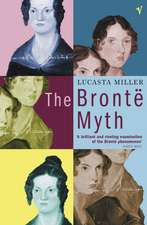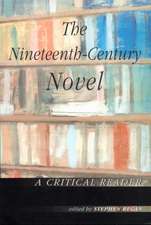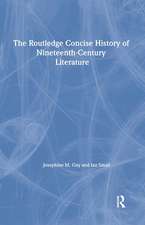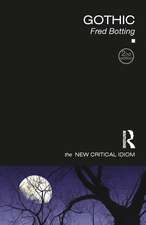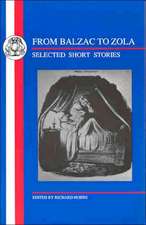Byron's Don Juan: Routledge Library Editions: Lord Byron
Autor Bernard Beattyen Limba Engleză Hardback – 26 apr 2016
The sustained argument of this book raises questions of interest not only to students of Byron but of comedy in general, as well as of the place of religious motifs in apparently secularised modes.
Preț: 764.20 lei
Preț vechi: 1154.58 lei
-34% Nou
Puncte Express: 1146
Preț estimativ în valută:
146.36€ • 150.79$ • 122.60£
146.36€ • 150.79$ • 122.60£
Carte tipărită la comandă
Livrare economică 24 februarie-10 martie
Preluare comenzi: 021 569.72.76
Specificații
ISBN-13: 9781138648555
ISBN-10: 1138648558
Pagini: 258
Dimensiuni: 156 x 234 mm
Greutate: 0.45 kg
Ediția:1
Editura: Taylor & Francis
Colecția Routledge
Seria Routledge Library Editions: Lord Byron
Locul publicării:Oxford, United Kingdom
ISBN-10: 1138648558
Pagini: 258
Dimensiuni: 156 x 234 mm
Greutate: 0.45 kg
Ediția:1
Editura: Taylor & Francis
Colecția Routledge
Seria Routledge Library Editions: Lord Byron
Locul publicării:Oxford, United Kingdom
Public țintă
General, Postgraduate, and UndergraduateCuprins
Preface; 1. Commandant and Commendatore 2. The Narrator’s Cantos 3. The Amorous Sphere 4. Aurora Raby; Conclusion; Index
Descriere
First published in 1985. The legend of Don Juan was entrenched in European literature and other arts long before it came under Byron’s hands, yet Byron’s treatment of the story is often almost unrecognisably far from its forebears. Beatty indicates how deeply Byron has assimilated his predecessors in order to produce his own work. The sustained argument of this book raises questions of interest not only to students of Byron but of comedy in general, as well as of the place of religious motifs in apparently secularised modes.








